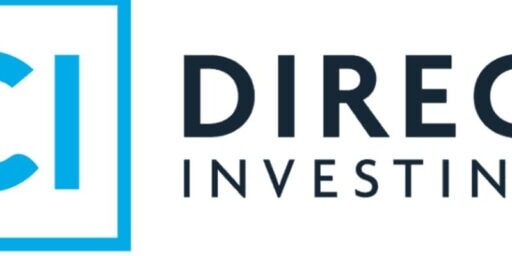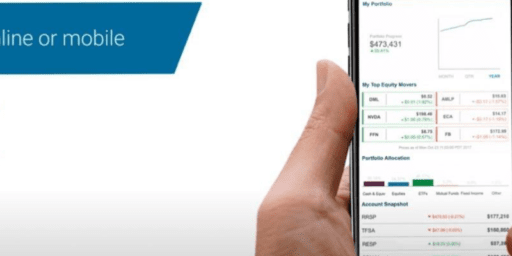The Secret World of Private Banking
I’ve read more personal finance books than I care to admit. I’ve had more conversations about money with people than I’ve had about most other subjects. I enjoy getting a new perspective on money. There always seems to be something new to learn. Recently I found out about a side of banking I’d never heard about before.
I was chatting with a someone I’d only just met. She mentioned that she use to work at a bank which naturally got my attention. “What was your job at the bank?”, I asked. She explained that she worked in private banking. Thinking she meant that she worked for a private bank or credit union I asked her, “What’s private banking?”
I confess, I’m no economist. Nor have I ever worked in the financial sector. I have an interest in personal finance. I do a lot of volunteer work helping people with the basics of money management but I have no formal training on the subject. I can’t be the only one who has never hard of private banking.
She explained that private banking is for people whose balances totaled more than a million dollars. At first I thought, “Of course. That makes sense. They have so much invested at the bank so the bank gives them special VIP treatment to show their appreciation.”
“Not quite”, she clarified “They pay more in service fees, not less. Clients meet with us on a separate floor of the bank that is only accessible to people with a large net worth but they often pay in excess of $100 a month in bank fees.”
This is where I got confused. These individuals keep massive amounts of cash at banks who then lend that same cash out to other people for a profit and they charge them for it? At this point, I’m really curious. I thought the road to wealth was paved by saving money not by paying more. This goes against everything I learned in the Millionaire Next Door.
Millionaires are doing banks a favour by trusting their money with their bank. They should not have to pay in excess of $1200 a year in bank fees to keep it there.
“They get excellent customer service”, she explained. “They never have to wait in line. Our job is to show them how valued they are.”
I can see the argument that it’s a bit like first class airline tickets. If people want better, faster service in a more comfortable environment and they are willing to pay for it, who am I to question their reasoning? Yet there doesn’t seem to be the same conflict of interest when it comes to airlines.
“I really enjoyed my time there”, she said. “The people were really nice and I always met my sales targets.”
“Sales targets? You mean to tell me that not only does the bank charge them in excess of $1200 a year in yearly bank fees but they also had to promote products the clients might not need in order to reach sales targets?”
She laughed when I told her I’d be no good at that job. I’d keep trying to talk clients out of products they didn’t need.
What I wondered but didn’t get a chance to ask was could I as a regular customer with a net worth of well under a million dollars pay the extra bank fees in order to get the VIP service. If the answer was yes, then I’d argue that private banking is simply paying more for better service. If the answer is no, as I suspect it is, then I can’t help but wonder if there are some serious conflict of interest issues that need to be addressed.
Anyone in the world of banking who care to shed any light on this? Is it in fact available to anyone who is willing to pay the fees or is it restricted by total bank balance?
Kathryn has been a staff writer for MDJ since January 2009. During the day she works in an office. In her off hours, she volunteers as a financial coach helping ordinary Canadians with the basics of money management. Kathryn, along with her husband and two children live in Ontario.
I've Completed My Million Dollar Journey. Let Me Guide You Through Yours!
Sign up below to get a copy of our free eBook: Can I Retire Yet?










I am likely to become a customer in the near future – and since most of the comments here are wide of the mark, I thought I’d add a few details.
First, the fees are generally waived as you add more assets into the banking side of things. At $1M, the fees go down to ~$50 for most of the Canadian private banks I’ve looked into – and may disappear as you get higher.
However, the services I’m looking for from them are generally things like exchanging currencies. My income will primarily be in US dollars, and they will swap currencies without taking a percentage or charging fees. They also provide loans/mortgages against securities that banks won’t normally provide, so I’ll be able to purchase a house, and the lending rates are better than you’d normally be able to get elsewhere. That makes it worth the ~$600 in fees, even if you don’t include the other perks that come along with it.
All of the comments about “being treated special” really don’t apply. I’ll probably never walk into a branch office, I’ll probably opt for the cheaper credit card that comes with the account, and most of the other “privileges” that come with the service probably won’t help me – but I’ll likely be saving thousands of dollars in currency conversion per year, and in lower cost mortgage payments.
I actually belong to private banking because of my husband’s family and you actually get charged zero fees once you are above a certain threshold ( I think around $10 million). So it’s probably not worth it if you have only $1 million of investable assets, but it’s definitely worth it if you have between $5-9 and certainly over 10, when you get zero fees — for bank accounts, credit cards or monthly management. Finances get so complex at that level (tax planning, accountants, transferring, mortgages, inheritance) and the level of service is amazing. If you’re busy working it’s worth it to pay $100 a month for someone else to expertly handle your money. You literally have one person you work with at the bank and can just deal directly with the to handle everything — no waiting at a branch or having to deal with a call centre in India.
Also, we have to remember that a lot of people have that much cash in the bank in Toronto and Vancouver just from selling their houses and are likely clueless about how to make it last and invest it so it could be worth it to them to pay for a money manager and get access to special investments.
For those interested in dabbling their toes in this, HSBC Premier offers a “private banking lite” service for free if you have a minimum of $100k investable assets. Of course they would like for you to invest those on their own high margin products, but you can also stick them in an HSBC Investdirect account and so self-directed investing at $10/trade. The lack of fees on banking and greater international travel savings and convenience make it worth it.
Interesting article. In another setting, wouldn’t the high net-worth clients be called the “mark?” $100/month fee plus a percentage of total assets under management plus commissions and brokerage fees plus special access to hedge funds and other esoteric products (think Bernie Madoff). Hmmm…. I think I’ll manage my high net-worth myself! ;)
HI Dana,
Well said. I have 3 main issues:
1. The minimums could be $million, $100,000, or zero. Minimums are arbitrary and not enforced. They are a common marketing ploy in the financial industry to give a false impression of quality. Some specific investments have a legitimate reason for a minimum, but advice and services, especially banking advice, rarely have any reason or benefit from a minimum.
2. You are right that the products offered are usually in-house products. In general, nobody should buy in-house products. If the person advising an investment is from the same or connected company to the investment itself, that should be reason alone to not consider the investment. For example, how can a bank employee recommending a bank-owned wrap program, a bank mutual fund, or a service by another bank employee be considered independent advice? Or even advice at all?
3. Private banking advice is generally only a small subset of financial advice, since it normally excludes advice on tax, insurance and independent investments.You are probably right that private banking is not really suited to DIYers, and it is also generally not suitable for people with a good financial advisor or accountant.
Ed
I just want to say that I agree with Ed Rempel completely. Most of the products and services that are offered *exclusively* to private banking clients and HNW individuals are avaialable cheaper/free elsewhere.
Financial Institutions don’t want private banking clients who manage their own investments and want to negotiate fees and services. We use to call these “order only accounts” and we tried to avoid them as they are not very profitable. Private Banking is for people who don’t want or are not able to manage their financial affairs. Many affluent people just aren’t very financially literate – they are knowledgeable about their own business/career and outsource their money management.
Anyone who is a shareholder of a bank and/or ETF/MF/Pension fund that invests in banks should be thrilled with this service as it is often one of the most profitable lines of business for financial institutions. This is because private banking clients are steered into proprietary products within lines of business owned by the bank (conflict of interest?) and all the fees and profits are kept “in the family”.
Most of the private banking clients I dealt with were either business for self (and focused their energy on their business, not their money) or elderly people who were consolidating and arranging their financial affairs to make the management of their estate easier.
Private banking is probably not suited to a fiancial do-it-yourselfer.
This is an interesting post! I’m intrigued. I’d never heard of private banking either but I’m definitely going to look into it now. Honestly, these multi-millionaires aren’t stupid and they aren’t just paying in excess for nothing. There’s got to be something valuable to them in order for them to request this service. Thanks to everyone who commented- your comments helped me understand also.
Its not a matter that ‘average income people’ don’t have access to better offers, but that these people are pretty much never offered it; But its still available on a basic level for sure. This depends on the bank, and on the value of your funds of course, but if you ask or talk to a manager, you have a lot more chance at getting what you want.
The way I see it, if you have over $100k-200k, than you ‘may’ get offered better products. By better; I mean stocks, mutual funds, equity, etc. I am not old and havn’t been banking all my life but here is my experience.
-under $1000 – they dont care and won’t ask questions
-under $5000 – Still they don’t care, they can’t make more than a few dollars off you
-over $10,000 – They may ask if there is anything else you need because they figure if you have that much money sitting there, you want the bank to keep playing with it and for you to not touch it?
-over $25,000 – They may start to recognize you, even though you have been coming there for a few years, NOW they notice you.
– Over $50,000 – Now they offer a GIC or a TermDeposit, instead of their checking or savings account
– Over $100,000 – Oh did anyone mention to you we have a mutual fund that averages 8-10%?
Always trying to push credit cards, lines of credit, and never mentioning that you could be getting a seriously higher return. Do I want them to offer me more? No I don’t care because I can do more with my money than any bank will ever offer me, no matter how much I have there.
**DISCLAIMER** This is my opinion only, I am not claiming to have superior knowledge on this subject; only stating what I think.
Hi Kathryn,
From our experience in the financial industry, ‘high net worth” products for wealthy people are mostly snob appeal. Private bankers we have talked to don’t offer any service or advice that your should not be able to get from a decent financial planner (that works with a lawyer and accountant).
For people with some money, often just being treated special, not having to wait in line, having the same banker, getting nice statements, and being invited to meals or entertainment gives them a feeling of importance. Special services and advice are generally a minor part or not part of the appeal.
“Estate planning, trust management, access to investment research used by the portfolio managers, access to pooled funds and managed asset products not made available to retail investors, tax planning services including CAs and accounting firms and other such services” are all available from many sources and are essentially all commodities today.
For example, in the investment industry, the products designed for people with $500,000 to $10 million are generally lower investment quality than those for the masses. These products are almost always 95% show and 5% quality.
Pooled funds and wrap accounts with high minimums so they are not available to retail investors usually have lower quality fund managers and far less selection than retail mutual funds. Usually they involve being restricted to fund managers from one company or that have relationship with one bank – but they have very nice, pretty statements.
We have looked at quite a few pooled funds and wrap programs and have yet to see any with fund managers as good as you can get with mutual funds with top fund managers.
Pooled funds usually are mutual funds with a minimum of $25,000 or more all from one company with only fund managers from that company that you can buy as a package possibly with marginally lower MER – and nice, pretty statements.
Wrap programs are usually portfolios of a bunch of mutual funds with fund managers either all from one fund company or from a short list that one company has a relationship with possibly with slightly lower MER – and nice, pretty statements.
Personally, I have not yet seen a pooled fund or wrap program in Canada that rivals a selection of mutual funds with top fund managers. Only when investors get up to $10-15 million do they often go back to selecting from close to the full universe of fund managers to individually select the top fund managers – which is what retail investors can do.
Generally, any financial service available to the moderately wealthy ($500,000 to $10 million) for extra fees are also available to the masses for little or no cost if you know where to look.
Ed
Great comments.
As a customer, I should clarify a few things.
The cost typically is $100 / mth for services. This usually gives you those access perks, an account manger, preferred rates on loans and USD exchanges, etc. There are also some fringe perks such as waiving of credit card annual fees, no charges for safety deposit boxes and I’m sure more.
While there is no official net work minimum (that I’m aware of), they usually do recommend having $1 million in assets. Note that this different from the more exclusive accounts that require $1 million in investable assets to start.
Lastly, they can be quite helpful for helping out with some team coordiation. Someone else noted about inhouse lawyers, accountants, insurance, etc and I agree these are all good.
Hope that helps
Sounds like for $0/month ($5k balance), TD Select service offers pretty much the same perks. Waive annual fees on their premium credit cards, safety deposit box, preferred USD rates, free cheques.